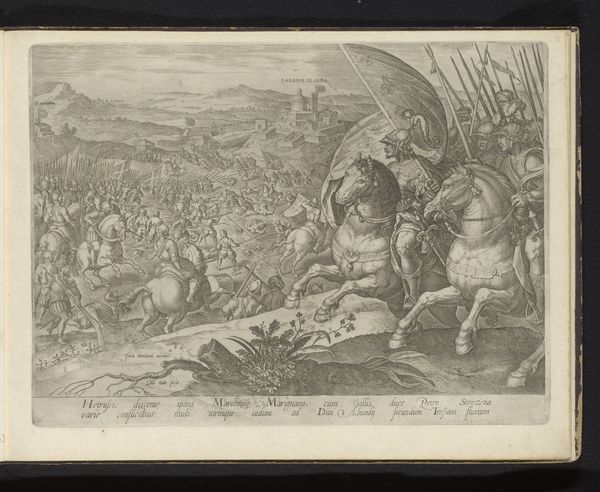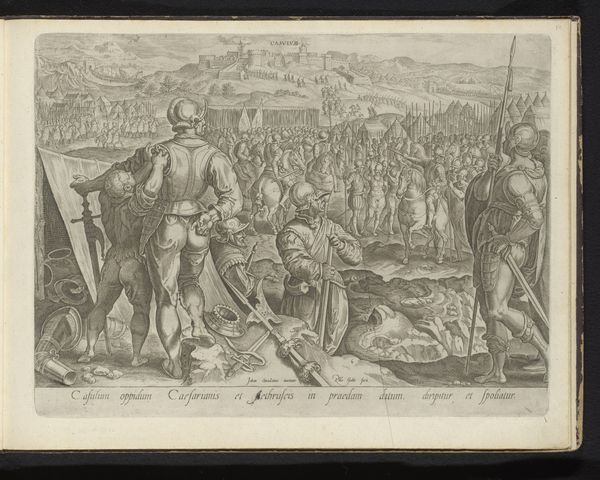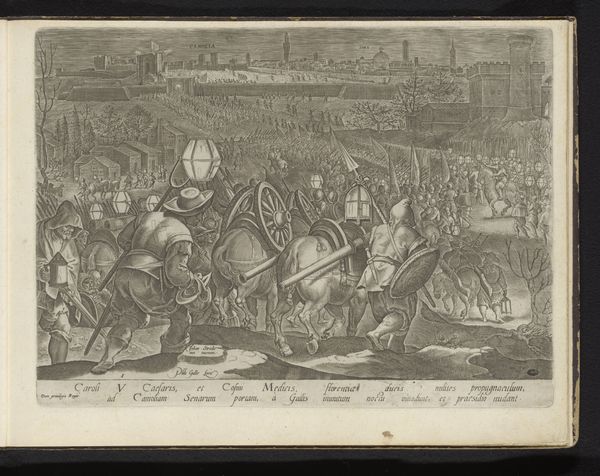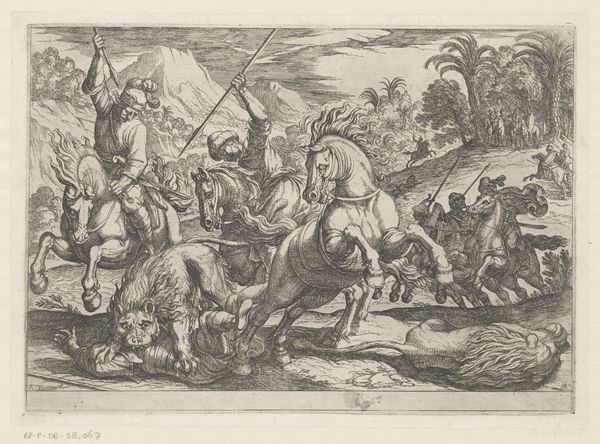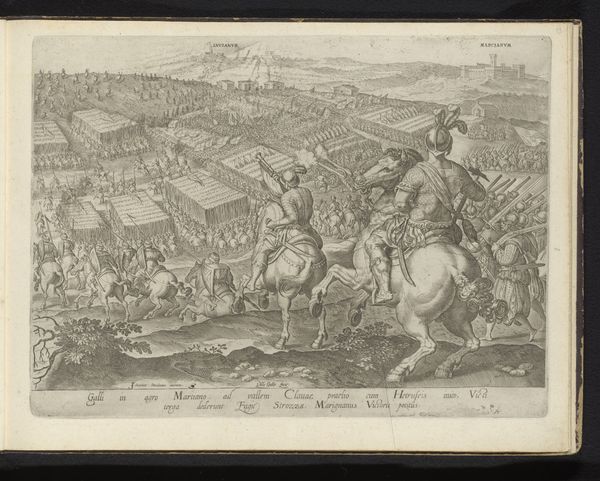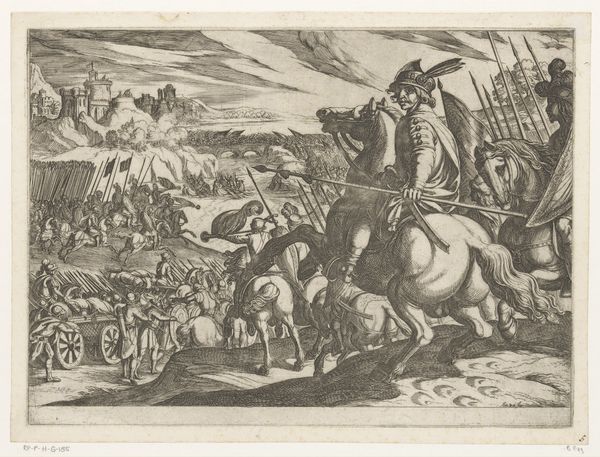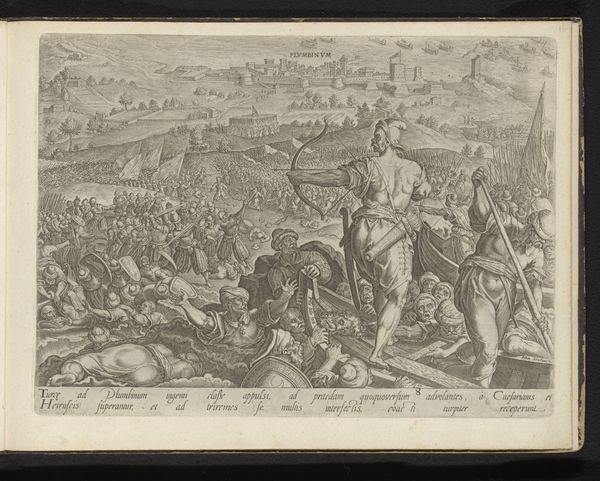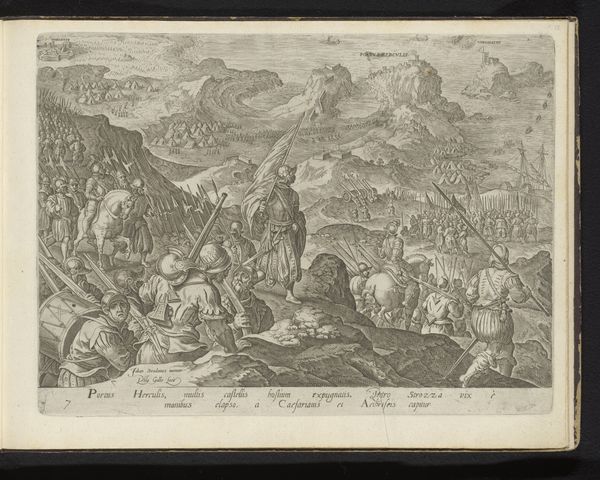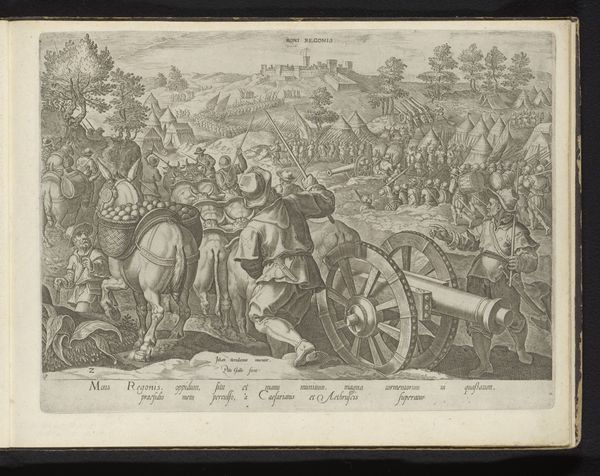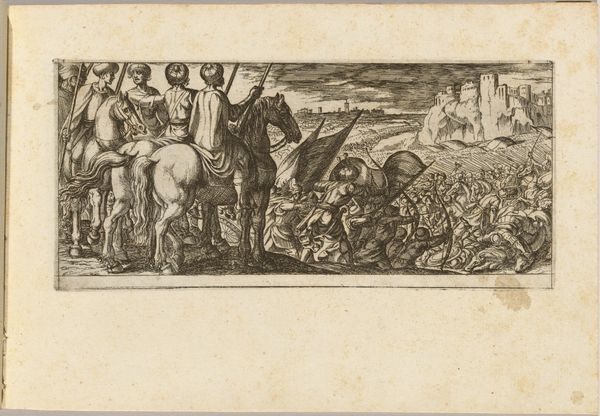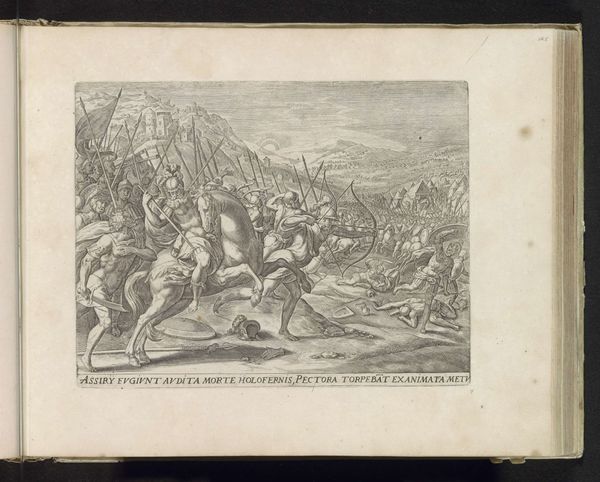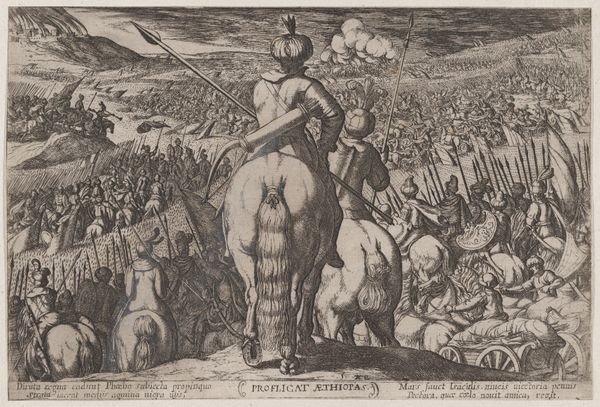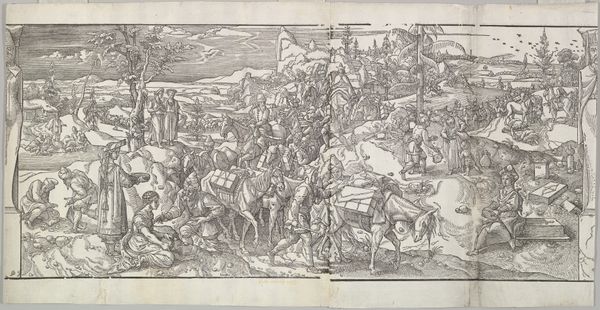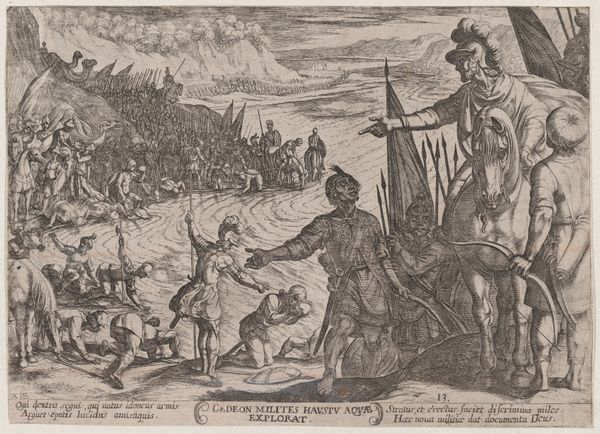
print, engraving
# print
#
landscape
#
mannerism
#
figuration
#
history-painting
#
engraving
Dimensions: height 220 mm, width 297 mm
Copyright: Rijks Museum: Open Domain
Philips Galle’s engraving, “Slag bij Marciano,” depicts a bloody battle scene with incredible detail. It was made in the Netherlands sometime in the late 16th century, a period of intense political and religious conflict. Galle made this print at a time when the Netherlands was under Spanish rule and embroiled in the Eighty Years' War. Consider the cultural associations carried by such an image; the clash of armies, the fallen soldiers, and the distant city. The print’s creation likely served as a form of propaganda, reinforcing a particular narrative about the war. Publishers like Galle were closely tied to the political structures of the day, producing images that supported the dominant ideology. To truly understand this engraving, we need to investigate the historical context: the political climate, the religious tensions, and the economic interests at play. Researching period documents, political pamphlets, and the biographies of key figures involved in the war can shed light on Galle’s motivations and the image's reception. Art, like history, is always contingent.
Comments
No comments
Be the first to comment and join the conversation on the ultimate creative platform.
